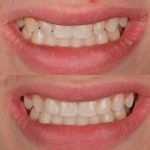Why Oral Health Care is Important for Children's Health
As parents, guardians, or caretakers, ensuring that children maintain good oral health is one of the most important responsibilities we have. Oral health care is not just about preventing cavities; it has far-reaching effects on a child's overall well-being, self-esteem, and even academic success. Yet, many overlook the importance of early dental care, believing that it’s too soon to worry about children's teeth or assuming that baby teeth are not important because they will fall out eventually. This misconception can lead to a range of oral health issues down the line. Let’s dive deeper into why oral health care is critical for children and how it shapes their future health.
1. Oral Health Impacts Overall Health
While it may seem obvious, many people don’t realize the strong connection between oral health and overall health. The condition of a child’s teeth can affect not only their ability to eat and speak properly but also their physical and mental health. Poor oral hygiene can lead to conditions such as gum disease, tooth decay, and even more serious systemic conditions such as heart disease and diabetes. Early childhood oral health issues like untreated cavities can spread infections to other parts of the body, leading to painful and expensive medical complications.
In fact, children with poor oral health are more likely to experience difficulty eating, speaking, and concentrating in school. Their overall quality of life can be diminished due to discomfort and pain caused by dental issues. A child’s ability to maintain proper nutrition can also be hampered if dental problems make it painful to eat certain foods, leading to unhealthy eating habits.
2. Preventing Tooth Decay with Early Care
Tooth decay is one of the most common chronic diseases in children, yet it is largely preventable with good oral care. Baby teeth may eventually fall out, but their health is essential for the development of adult teeth. If children suffer from cavities or untreated infections in their baby teeth, it can affect the health of their permanent teeth. By introducing a consistent oral hygiene routine early on, such as brushing with fluoride toothpaste twice a day and flossing, you can prevent tooth decay and reduce the risk of cavities.
Regular dentist visits, ideally starting by the age of one, also help catch potential issues early, ensuring that any oral health problems are addressed before they become severe. A pediatric dentist can provide guidance on maintaining proper hygiene, fluoride treatments, and how to care for teeth in the best possible way to ensure a healthy smile.
3. Establishing Healthy Habits Early On
Teaching children good oral hygiene habits early in life sets the foundation for a lifetime of healthy teeth and gums. As parents, it’s important to lead by example, demonstrating proper brushing techniques, flossing, and regular visits to the dentist. Children tend to model their behavior after their caregivers, so it’s vital that they see their parents taking care of their own oral health.
Introducing dental care as a fun and positive part of daily routines can help prevent resistance. Let children choose their own toothbrushes and toothpaste, or make brushing a fun activity with songs or games. Additionally, educating kids on the long-term benefits of good oral hygiene, such as a bright, confident smile, can motivate them to take ownership of their dental health.
4. Oral Health Affects Speech Development
Oral health doesn’t just impact eating; it also affects speech development. Healthy teeth help children form sounds and words properly. When a child suffers from dental issues like misaligned teeth, missing teeth, or dental pain, their speech can be affected, leading to speech delays or difficulty pronouncing certain words.
For younger children, dental issues can cause difficulty with chewing, which may delay language development. If a child has difficulty chewing food properly due to dental pain or missing teeth, their social interactions may be hindered, and they may not develop certain speech skills as quickly. Early dental care can help avoid these challenges, ensuring that your child can communicate effectively with their peers.
5. How Poor Oral Health Affects Self-Esteem
One of the less talked about consequences of poor oral health is its effect on a child’s self-esteem. Children who experience dental issues like bad breath, tooth decay, or crooked teeth may feel embarrassed or self-conscious about their appearance. This can affect their confidence, social interactions, and even performance in school.
A healthy smile can boost a child’s self-esteem, while oral health problems can cause them to withdraw or feel insecure about their smile. By ensuring that your child’s teeth are healthy and well-maintained, you provide them with the confidence they need to face the world with a smile.
6. Making Regular Dental Visits Part of the Routine
Regular dental visits are crucial for preventing oral health issues and ensuring that children’s teeth remain healthy. Pediatric dentists recommend that children have their first dental visit by age one, or within six months of the eruption of their first tooth. These visits help establish a relationship with the dentist, allowing children to become accustomed to the process and reducing any fear or anxiety related to dental appointments.
During these visits, the dentist will check for any potential issues, provide a professional cleaning, and offer guidance on brushing, flossing, and diet. They may also recommend sealants or fluoride treatments to further protect the child’s teeth. Regular check-ups ensure that any problems are caught early and addressed before they become more serious and difficult to treat.
7. The Role of Diet in Children's Oral Health
Diet plays a significant role in a child’s oral health. The foods and drinks children consume directly impact the health of their teeth and gums. Sugary snacks, sodas, and acidic foods can contribute to tooth decay and gum disease. To promote optimal oral health, it’s important to provide children with a balanced diet full of fruits, vegetables, whole grains, and dairy products. Limiting sugary treats and encouraging water consumption can also help protect teeth from cavities and other dental issues.
Encouraging children to brush their teeth after meals and avoid snacking excessively between meals is another way to help reduce the risk of oral health problems. Teaching kids the importance of maintaining a balanced diet not only helps their teeth but also supports their overall health and development.






 Amsterdam Dental Group4.0 (184 review)
Amsterdam Dental Group4.0 (184 review) North Park Family Dental: Dr. Michelle Kline4.0 (25 review)
North Park Family Dental: Dr. Michelle Kline4.0 (25 review) Round Lake Dental4.0 (115 review)
Round Lake Dental4.0 (115 review) SK Family Dental: Jinsam Kwon, DDS5.0 (2 review)
SK Family Dental: Jinsam Kwon, DDS5.0 (2 review) VCC: The Gary Center2.0 (45 review)
VCC: The Gary Center2.0 (45 review) Pediatric Dental Associates of Northeast Philadelphia4.0 (2351 review)
Pediatric Dental Associates of Northeast Philadelphia4.0 (2351 review) The Importance of Oral Health Education During Pregnancy for a Healthy Pregnancy
The Importance of Oral Health Education During Pregnancy for a Healthy Pregnancy Best Tips for Brushing Your Teeth Properly for Healthy Gums: Essential Techniques for Oral Health
Best Tips for Brushing Your Teeth Properly for Healthy Gums: Essential Techniques for Oral Health Why Skipping Dental Checkups Can Lead to Bigger Oral Health Problems
Why Skipping Dental Checkups Can Lead to Bigger Oral Health Problems Advantages of Porcelain Dental Restorations
Advantages of Porcelain Dental Restorations How Can Diabetes Cause Tooth and Gum Problems? Preventing and Managing Oral Health Issues
How Can Diabetes Cause Tooth and Gum Problems? Preventing and Managing Oral Health Issues Healthy Habits for Promoting Good Oral Health and Hygiene: Tips for a Healthy Smile
Healthy Habits for Promoting Good Oral Health and Hygiene: Tips for a Healthy Smile